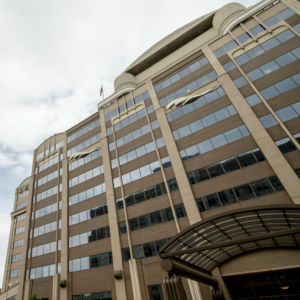The Federal Communications Commission fined and permanently banned a wireless carrier from its Lifeline phone subsidy program for low income Americans this week, while touting major recent Democratic reforms to Lifeline that may not survive the agency’s Republican takeover.
In a follow up to its historic fine of $51 million leveled against Total Call Mobile this year, the FCC announced Thursday the carrier will settle the case for $30 million. As part of the deal, Total Call Mobile will be banned from participating in Lifeline, which pays carriers $9.25 per subscriber monthly for those falling below certain income thresholds.
The $30 million includes a $10 million repayment to the Universal Service Fund and admission of wrongdoing for fraudulently and knowingly enrolling tens of thousands of duplicate, ineligible and “phantom” subscribers.
“We have no toleration for fraud,” FCC Enforcement Bureau Chief Travis LeBlanc said Thursday. “This unprecedented $30 million settlement along with a permanent ban from the Lifeline program affirms our commitment to pursue the strongest sanctions for those who defraud or abuse the Universal Service program.”
As part of the announcement the agency stumped for Lifeline reforms passed by outgoing Democratic Chairman Tom Wheeler aimed at tackling fraud. Those include a national eligibility verifier system that will charge a third party with verifying the eligibility of enrollees, however that system won’t be in place until 2019. The current system allows carriers to self-certify applications and even override a “no” response from an FCC verification database.
Republican FCC Commissioner Ajit Pai, expected to take over as acting chairman when Wheeler departs in January, is skeptical of the verifier system. The agency has a deadline to release an outline of the system by December.
“There is a database that currently carriers can override, and that’s part of the reason why we’re seeing some carriers now simply bypassing it, rejecting the no answer that they get from it, in order to sign up customers,” Pai told Congress in April. “I’m afraid that this time around I wouldn’t be all that much more optimistic.”
The Lifeline program has faced tough scrutiny from Pai’s office. The commissioner has been conducting his own investigation of high duplicate, ineligible and phantom enrollment among more than a dozen providers across the country this year. The FCC’s enforcement bureau has already taken action against one.
Pai and fellow Republican Commissioner Michael O’Reilly voted against Wheeler’s Lifeline reform after Democratic Commissioner Mignon Clyburn backed out of a last-minute compromise. Now they’re ready to claim the majority at the agency after Wheeler and Democratic Commissioner Jessica Rosenworcel leave with the Obama administration in January.
Members of President-elect Donald Trump’s FCC transition team have expressed similar doubts about Wheeler’s reforms, which included an uncapped budget and broadband subsidies.
“[P]ouring new wine (cellular) into old wineskins (Lifeline) caused the program to burst at the seams with significant fraud and waste, all to apply a demonstrably ineffective subsidy scheme to a service that the poor had already found to be affordable,” AEI fellow and transition team member Mark Jamison wrote for InsideSources last June. “[T]he FCC has decided to ‘modernize’ the program by expanding it. How much it will be expanded is yet to be seen, but if history is any teacher the subsidy will be large and the benefits will accrue to someone besides the poor who want advanced telecommunications and cannot afford it.”
“As Commissioners Pai and O’Reilly point out in their dissenting statements, there is much to be done,” he added.
In a July op-ed for Tech Policy Daily Jamison cited a Georgetown study that found “even if the FCC perfectly enforced its Lifeline policies … 19 out of 20 low-income households subsidized would buy service even without the subsidy,” and suggested reforms like Wheeler’s would “create waste rather than solutions.”
Fellow AEI scholar and transition team member Jeff Eisenach has made similar comments about the program’s history of fraud and abuse.
“The commission’s history in running the Universal Service Program is not spotless,” Eisenach said at an AEI event in November 2014. “There certainly have been examples of waste, fraud and abuse. Every dollar has not been spent more wisely than one might expect it would be, and so the need for continuing oversight and reform, I don’t think is a subject like so many things at the FCC these days, of very much controversy.”

